Crescent Sustainability Initiatives
Quality Education (SDG 4)
B.S. Abdur Rahman Crescent Institute of Science and Technology organized a public educational event focused on legal awareness, demonstrating the university’s commitment to lifelong learning and community engagement.
Commitment to Lifelong Learning and Community Engagement
The B.S. Abdur Rahman Crescent Institute of Science and Technology (BSACIST) has actively promoted lifelong learning and community engagement through public educational events. One notable initiative was a comprehensive legal awareness program for women from the nearby village. This event, titled “Legal Education Outreach: Bridging Legal Knowledge with Community Needs,” provided approximately 50 women with essential knowledge on critical legal issues such as domestic violence, property rights, dowry-related matters, and sexual assault. The university ensured accessibility by hosting the event in its Seminar Hall-I and offering free transportation to participants, highlighting its commitment to inclusivity.
Innovative Educational Approaches
The educational content was designed to engage the audience through innovative methodologies, including student-performed skits, which made complex legal concepts more relatable. Additionally, BSACIST committed to ongoing support by providing free legal consultancy services, transforming the event into a continuous resource for women seeking legal guidance.
Promoting Technological Literacy Through Workshops
In another initiative, the Department of Electrical and Electronics Engineering organized a one-day “Home Automation” workshop for 12th-standard high school students. This workshop aimed to foster technological literacy and STEM engagement, aligning with Sustainable Development Goal 4.2.1, which focuses on quality early childhood education. Through hands-on activities and interactive demonstrations, students gained practical knowledge about home automation, sparking their interest in STEM fields.
Fostering an Inclusive Learning Environment
By inviting high school students to the campus, the institute created an inclusive learning environment that encourages exploration and intellectual growth. This initiative not only equips students with valuable technological skills but also inspires them to pursue careers in STEM, contributing to a more technologically advanced and inclusive society. Overall, BSACIST’s efforts exemplify the vital role universities can play in community development and lifelong learning.
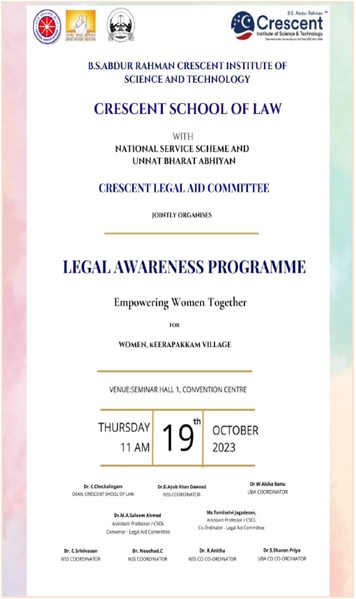
Figure IV (3.2) –1: Public Event 1 – Legal Awareness program – Invitation
B.S. Abdur Rahman Crescent Institute of Science and Technology (BSACIST) has significantly promoted lifelong learning through community engagement by hosting public educational events. A notable initiative involved a comprehensive legal awareness program tailored specifically for women from the nearby Keerapakkam village. This event demonstrated the university’s commitment to making legal education accessible while addressing the community’s pressing needs. By opening its doors to approximately 50 women, BSACIST provided invaluable knowledge and bridged the gap between academic institutions and local populations, reinforcing the importance of lifelong learning in empowering individuals.
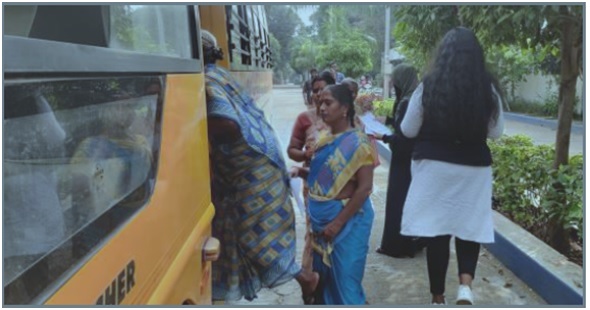
Figure IV (3.2) –2: Public Event 1: Empowering Communities through Legal Awareness: Lifelong Learning at BSACIST
Accessibility and Inclusivity for All
The “Legal Education Outreach: Bridging Legal Knowledge with Community Needs” event was hosted at the university’s Seminar Hall-I, ensuring that institutional facilities were accessible to the public. Understanding community members’ logistical challenges, the university provided free transportation via college buses, facilitating easy access for participants. This proactive approach highlights the institution’s dedication to inclusivity and recognizes the barriers that often prevent individuals, particularly rural women workers, from accessing educational resources.
Engaging Educational Content
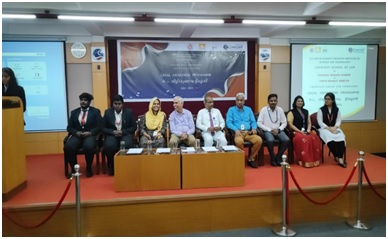
Figure IV (3.2) –3: Public Event 1 – Engaging Educational Content
Educational content during the program was thoughtfully curated to address critical legal issues facing women, such as domestic violence, property rights, dowry-related matters, and sexual assault. The university effectively conveyed complex legal concepts that engaged the audience and fostered better comprehension by employing innovative methodologies, such as student-performed skits. This interactive format not only made the information more relatable but also encouraged participation, ensuring that the attendees left with a meaningful understanding of their legal rights and responsibilities.
Support through Ongoing Initiatives
Perhaps the most impactful aspect of this initiative is the university’s commitment to providing ongoing support through free legal consultancy services. This sustainable approach transforms the educational event into a continuous resource for women seeking legal guidance, extending the program’s benefits beyond a single day of learning. The model established by BSACIST exemplifies how universities can play a vital role in community development, empowering individuals through knowledge sharing and practical support. Such initiatives fulfil the institution’s educational mission and lay the groundwork for more robust, informed communities, underscoring the essential role of lifelong learning in fostering societal progress.
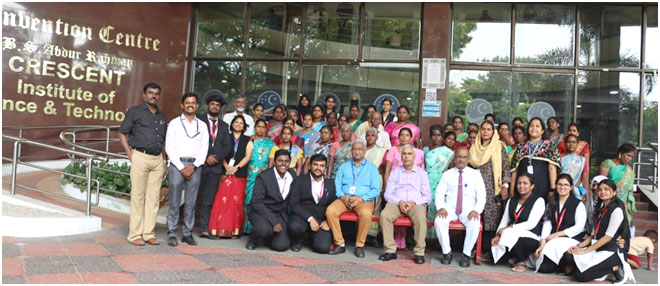
Figure IV (3.2) –4: Public Event 1 – Group Photo with Participants
Regional Newspaper cutting:
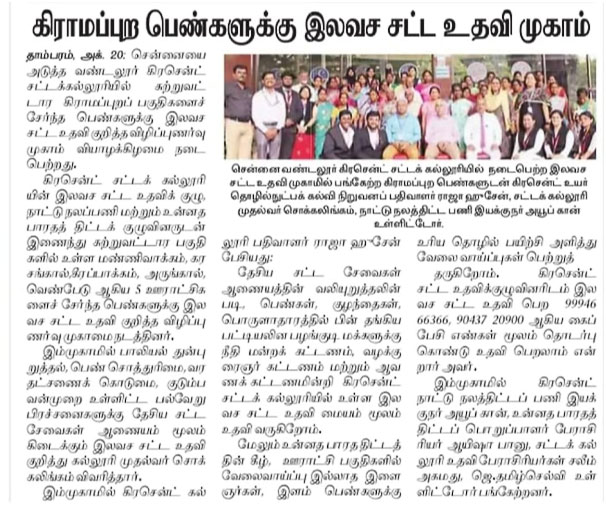
Figure IV (3.2) –5: Public Event 1 – Regional Newspaper cutting
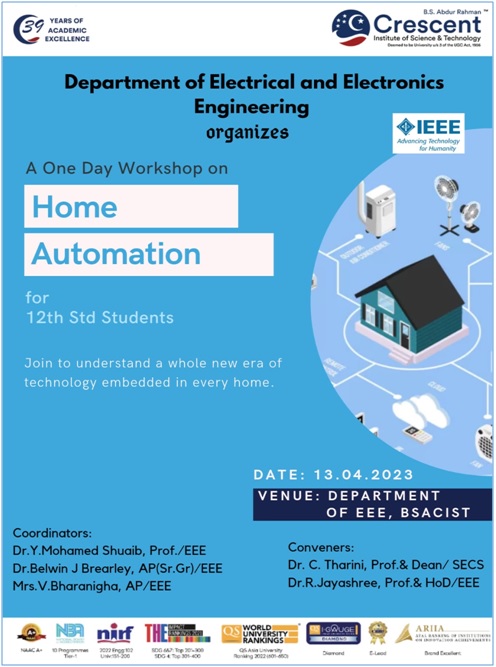
Figure IV (3.2) –6: Public Event 2 – Brochure for Home Automation
The Department of Electrical and Electronics Engineering at the B.S. Abdur Rahman Crescent Institute of Science & Technology has taken a proactive step in fostering technological literacy and STEM (Science, Technology, Engineering, and Mathematics) engagement among high school students. By organizing a one-day workshop on “Home Automation” for 12th standard students, the institute has aligned its efforts with the Sustainable Development Goal 4.2.1, which aims to ensure that all girls and boys have access to quality early childhood development, care, and pre-primary education.
The workshop provides these young learners with a unique opportunity to immerse themselves in the world of cutting-edge technologies. Through hands-on activities and interactive demonstrations, the students are able to explore the intricacies of home automation, gaining practical knowledge and developing a deeper understanding of the role of electronics and automation in modern living.
This early exposure to STEM concepts and applications is crucial for nurturing the students’ interest and aptitude in these fields. By sparking their curiosity and providing them with a tangible learning experience, the institute is laying a strong foundation for the students’ future educational and career paths. This not only contributes to the achievement of SDG 4.2.1 but also aligns with the broader goals of SDG 4, which emphasize the importance of quality education and the development of relevant skills for the 21st century.
Furthermore, the institute’s commitment to engaging high school students extends beyond the confines of the classroom. By inviting these young learners to their campus, the Department of Electrical and Electronics Engineering is creating a dynamic and inclusive learning environment that fosters a sense of exploration, discovery, and intellectual growth.
Through this innovative workshop, the Crescent Institute of Science & Technology is not only equipping the students with valuable technological knowledge but also inspiring them to pursue their passions in STEM-related fields. This initiative serves as a testament to the institute’s dedication to empowering the next generation of innovators and problem-solvers, ultimately contributing to the creation of a more technologically advanced and inclusive society.
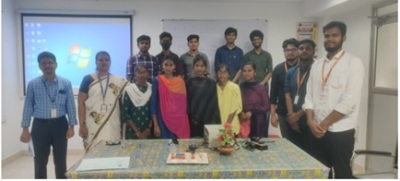
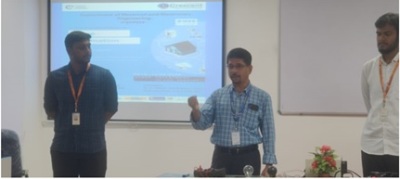
Figure IV (3.2) –7: Public Event 2: Enhancing Early Exposure to Technology for High School Students
On November 15, 2023, the Department of Polymer Engineering at B. S. Abdur Rahman Crescent Institute of Science and Technology organized a significant Career Guidance Programme aimed at Higher Secondary Students. This event exemplified the university’s commitment to lifelong learning by providing educational opportunities that extend beyond traditional academic boundaries. Open to students from various schools in and around Chennai, the programme served as a platform for young learners to explore potential career pathways in the field of polymer engineering. The initiative not only highlighted the importance of education in shaping future careers but also fostered community engagement by inviting local schools to participate in a collaborative learning experience.
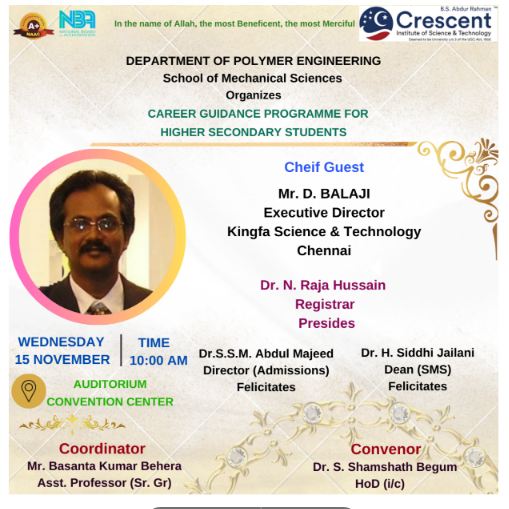
Figure IV (3.2) – 8 : Public Event 3 – Invitation for the Career Guidance Program for Higher Secondary Students
The Students from the following schools participated :
- Crescent School, Chennai
- Anne’s Matriculation Higher Secondary School, Perungalathur
- Sankara Vidyalaya, Urapakkam
The programme featured a series of informative sessions, beginning with a welcome address by the Head of the Department, Dr. S. Shamshath Begum, who emphasized the exciting opportunities within the polymer engineering field. The keynote address was delivered by Mr. D. Balaji, Executive Director of Kingfa Science & Technology, who shared his personal career journey and insights into the growing significance of polymer engineering in today’s world. His address underscored the versatility of plastics and the critical role they play in various industries, thereby encouraging students to consider careers in this dynamic field. Additionally, the event included interactive sessions with alumni, allowing students to engage directly with former students who shared their experiences and provided valuable advice on navigating their educational and career paths.
To enhance the learning experience, the programme incorporated competitions such as quizzes, debates, and essay writing contests, which not only made the event engaging but also encouraged students to apply their knowledge in practical scenarios. Prizes and participation certificates were awarded, further motivating students to actively participate in their learning journey. The event concluded with a summary highlighting the importance of polymer engineering and the various opportunities available for further studies, including scholarships for higher education abroad. This initiative not only enriched the students’ understanding of the polymer field but also reinforced the university’s role as a hub for lifelong learning, fostering a culture of inquiry and professional development within the community. Through such public events, the university continues to bridge the gap between academic knowledge and real-world applications, empowering the next generation of engineers and innovators.
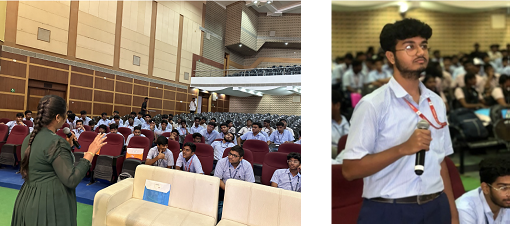
Figure IV (3.2) – 9 : Public Event 3 – Interactive Q&A session with the alumni
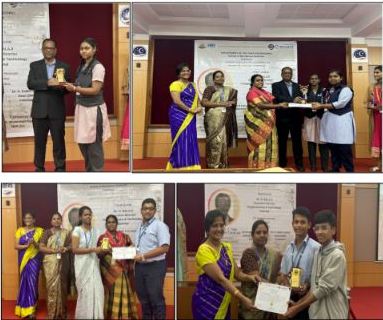
Figure IV (3.2) – 10 : Public Event 3 – Prize Distribution to the students involved in competitions such as quizzes, debates, and essay writing contests
Figure IV (3.2) – 11 : Public Event 3 – Media Coverage : https://youtu.be/2xDhzw7_74A
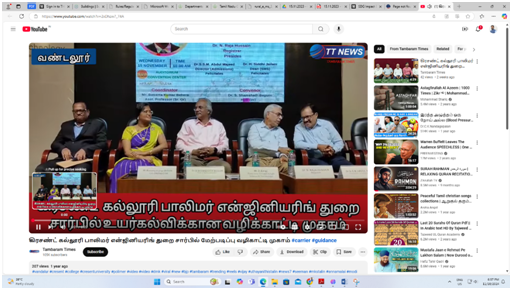
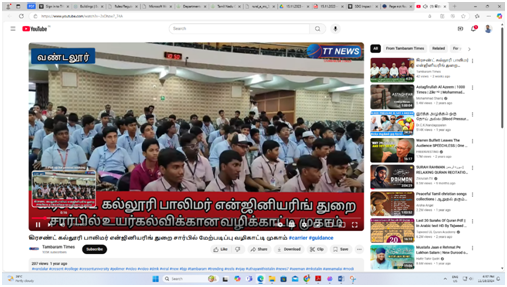
Policy for Life-Long Learning Access
Policy Document
Issue : 04; Revised on 2023
| Policy Created on | July 2009 |
| 1st Revision amended on | IQAC Meeting held on 27th October 2017 |
| 2nd Revision amended on | IQAC Meeting held on 31st March 2021 |
| 3rd Revision amended on | IQAC Meeting held on 16th June 2023 |
Responsible Executive : Director (IQAC)
Responsible Office : Internal Quality Assurance Cell, Student Affairs, Estate Office, Academic Office, Library and SDG Cell
Contacts : Registrar, Director (IQAC)
The revised policy has been approved in the 18th Meeting of the Internal Quality Assurance Cell (IQAC) held on 16.06.2023.
1. Statement of Policy
The B.S. Abdur Rahman Crescent Institute of Science and Technology is committed to ensuring inclusive and equitable quality education and promoting lifelong learning opportunities for all. This policy aims to enhance access to educational resources and foster a culture of continuous learning, aligning with the United Nation’s Sustainable Development Goal 4 (SDG 4).
2. Objectives
- Equitable Access: Ensure that all individuals, regardless of gender, socio-economic background, race, religion, or disability, have access to quality education and lifelong learning opportunities.
- Community Engagement: Actively involve the local community in educational initiatives, promoting awareness and participation in lifelong learning programs.
- Resource Availability: Provide free access to educational resources, including libraries, digital materials, and workshops, to facilitate continuous learning.
3. Policy Principles
- Lifelong Learning Opportunities: The Institute will offer a range of programs, workshops, and resources aimed at enhancing skills and knowledge for individuals of all ages.
- Inclusivity: All educational initiatives will be designed to be accessible to diverse populations, including marginalized and underrepresented groups.
- Public Engagement: The Institute will extend its facilities and resources to the community, ensuring that educational opportunities are available to all.
4. Lifelong Learning Measures
4.1 Public Resources (Lifelong Learning)
- Access to Campus Facilities: The Institute will provide free access to its facilities, including libraries, computer labs, and meeting spaces, for community members and local organizations.
- Special Coaching Programs: Organize coaching sessions for higher secondary students, focusing on subjects requested by local schools, conducted in both on-site and online formats.
4.2 Workshops and Training Programs
- Vocational Training Events: Conduct workshops on relevant topics, such as technology, legal awareness, and design, to enhance practical skills and knowledge in the community.
- Collaborative Learning: Encourage partnerships with local schools and organizations to facilitate educational outreach and skill development initiatives.
4.3 Online Resources and Open Access
- Digital Learning Materials: Provide open access to educational materials, including video lectures, course notes, and research papers, to promote self-directed learning.
- Online Courses: Develop and offer online courses that cater to various interests and skill levels, ensuring accessibility for all learners.
4.4 Community Engagement Initiatives
- Educational Outreach Activities: Organize events and competitions for local school children, fostering a connection between higher education and the community while promoting early learning.
- Legal Aid and Awareness Programs: Offer legal education and resources to community members, ensuring access to justice and legal knowledge.
5. Monitoring and Evaluation
The effectiveness of the lifelong learning measures will be regularly assessed through participant feedback and community engagement metrics. Adjustments will be made based on evaluations to improve the policy’s impact continuously.
This revised policy document reflects the commitment of B.S. Abdur Rahman Crescent Institute of Science and Technology to promote lifelong learning and educational equity. By implementing these measures, the Institute aims to empower individuals and communities, contributing to the broader goals of sustainable development and social welfare.


